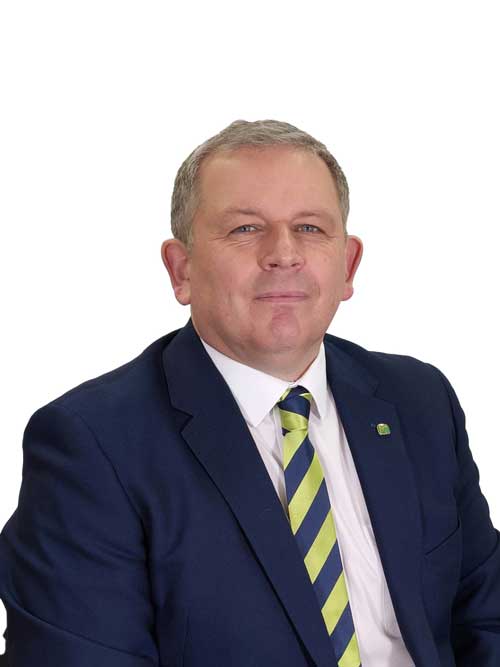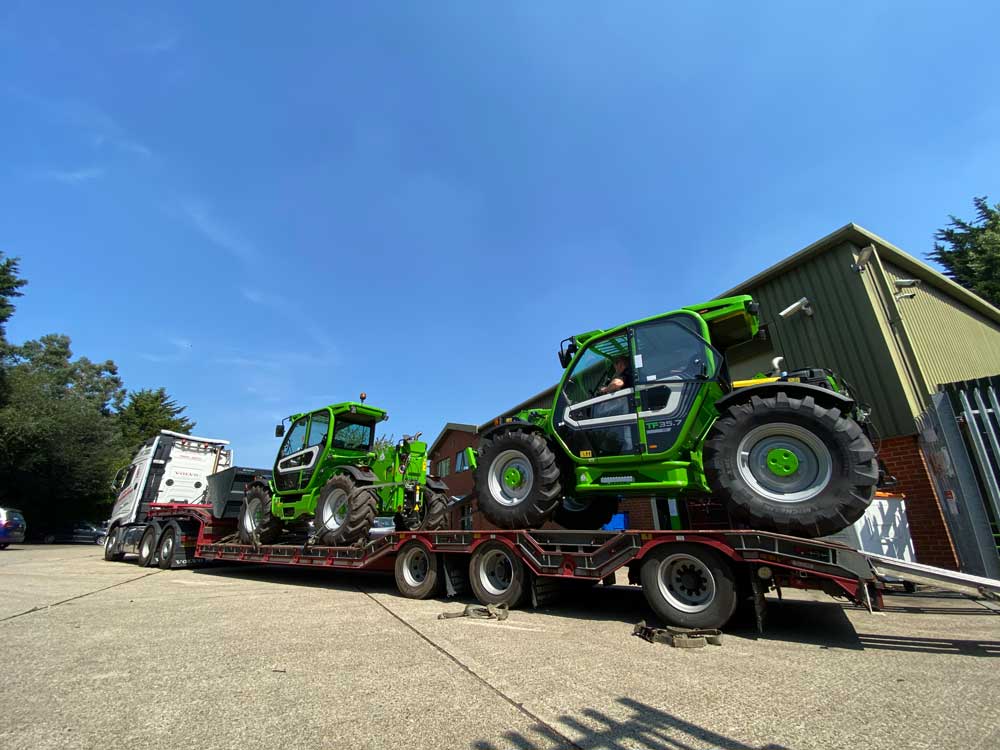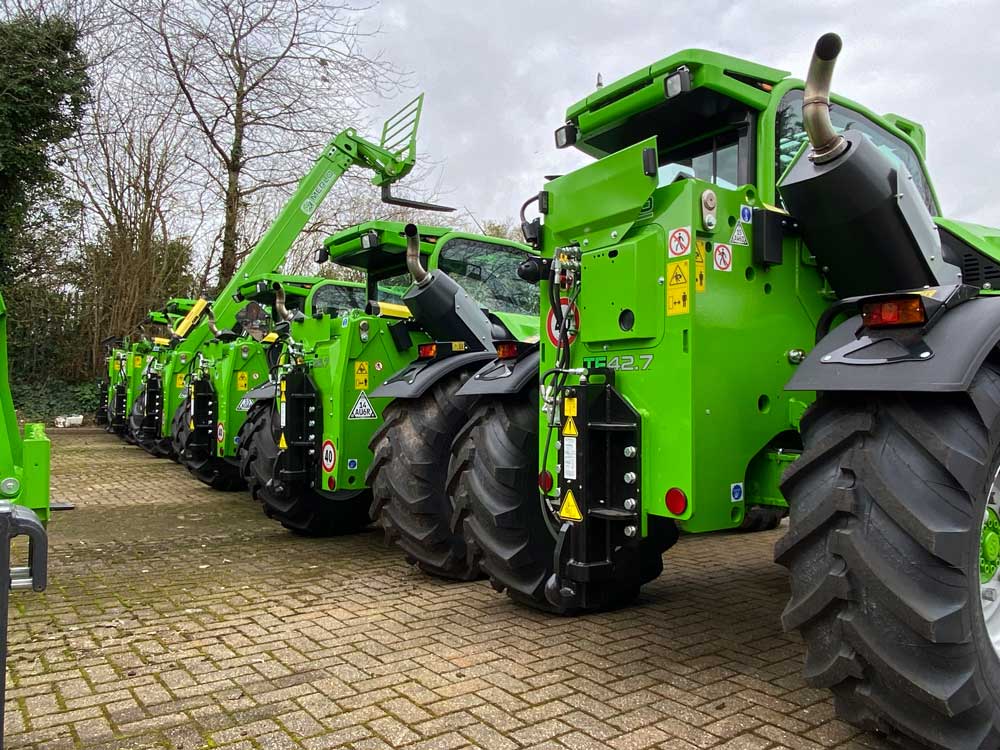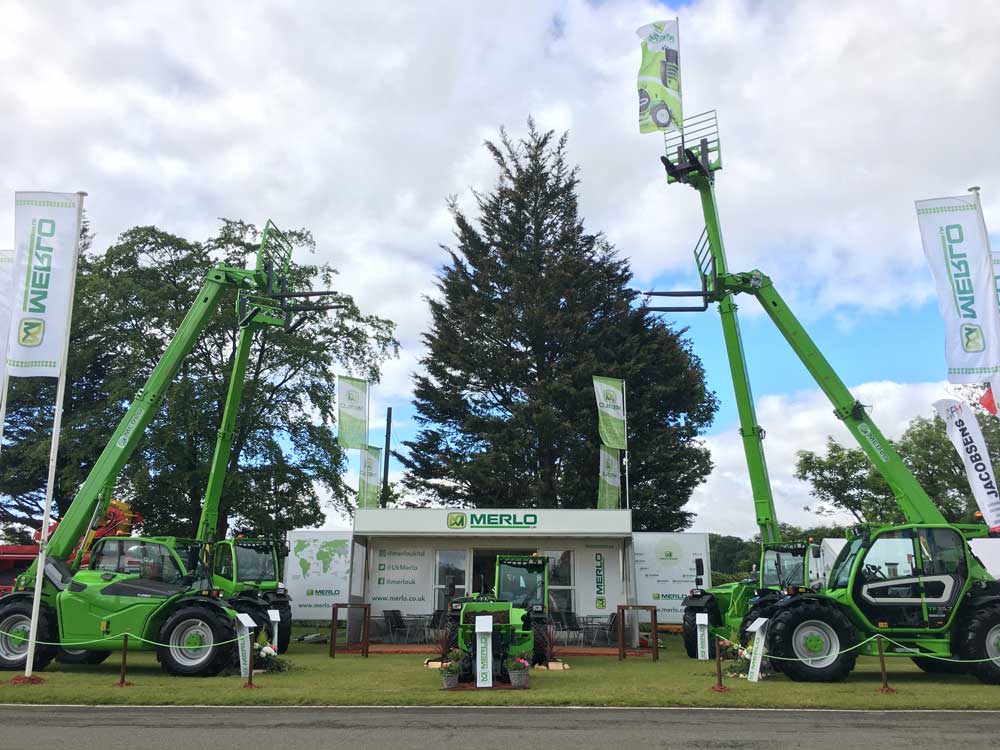Shaun Groom: Strong interest in agricultural machinery
Interview by Erminia Ciarleglio, DLG
Growing up in rural Norfolk in the East of England, Shaun Groom is now the Chairman of the Farm Equipment Council at the Agricultural Engineers Association (AEA). For 28 years he has worked for companies in the farm machinery industry. As a Kaizen philosophy fan and a DLG member since 2016, he appreciates the exchange of experiences with professionals from all over the world.
Mr Groom, just tell me about your working experience.
My current role is that of General Manager for Merlo UK Ltd (www.merlo.co.uk). I am responsible for the day to day operations and management of the UK subsidiary which supply’s Merlo Group products and aftersales support to the UK nationwide Merlo dealer network. Prior to joining Merlo I worked for 15 years with Austrian agricultural machinery manufacturer Pöttinger. The last 8 of those years were as General Manager & Director of the UK subsidiary Alois Pöttinger UK Ltd.
I originate from the rural county of Norfolk in the East of England, where agriculture plays a large part in the regional economy. From a very young age I had a strong interest in agriculture, particularly the equipment used on our neighbouring farm. I have held positions in retail and wholesale agricultural machinery operations during my 28 years in the industry. Beside the UK & Europe I spent a number of years in New Zealand working for one of the largest machinery distributors in Australasia. More recently I have been elected to the position of Chairman of the Farm Equipment Council at the Agricultural Engineers Association (AEA). Founded in 1875 the association represents the interests of manufacturers and distributors of a broad spectrum of agricultural & land based equipment.
One of my key business interests is the process of continuous improvement aligned with the principles of Kaizen. This subject area interests me greatly and I am always amazed how the process can bring great improvements to our daily work and life.
How do you implement the continuous improvement principles such as Kaizen in your day to day work?
Having worked for a number of years with a continuous improvement process, I have found it almost becomes second nature. In effect your actions and words almost automatically support those principles. The real experts in this process are the employees, they know their jobs inside out and are therefore best placed to help define enhancements to our way of working. It is a culture that must include the whole team on that journey to strive for better, seeking to constantly consider new ideas and be open to an ongoing evolution of the way we work. Taking time for regular discussions to explain, implement and review the benefits ensures we can deliver the very best experience for our customers, whilst securing the best possible working results for the business.
Have you noticed any changes since Brexit?
Indeed I have, since the 1st January there is now a significant increase in the amount of administration required to carry out business between the European Union and United Kingdom. For many UK businesses that deal with EU based suppliers or customers this has added significant costs and delays. Investments have been required for Customs processing software, additional training and in some cases additional staff.
Fortunately within the Merlo Group a great deal of planning and preparation was carried out during 2020. This has ensured that Merlo UK’s operations has remained largely unaffected thanks to implementing a number of the aforementioned actions. Working closely together with our parent company (Merlo S.p.A) in Cuneo, Italy we have ensured an uninterrupted flow of machinery & parts imports to our UK dealer networks since the beginning of 2021.
However, it is apparent many UK businesses across all industry sectors have witnessed issues including physical delays at the EU border. A reduced number of logistics options post Brexit thanks in most part to these delays has increased shipping times for many. The requirement for phytosanitary certification for exports to the EU for many agricultural products post Brexit has added a further level of administration, possible delay and costs for many businesses in our sector.
At present ex-farm prices for grain, meat & milk in the UK remain exceptionally positive thanks ironically to the COVID-19 pandemic. The pandemic has forced a major shift in eating habits. The significant increase in eating at home with restaurants being required to stay closed, has seen an increase in the demand for locally produced food. British agriculture has benefitted directly from this shift and it has encouraged many producers to establish more direct routes for their produce to the consumer.
The constant search for improvement: Kaizen
Kaizen refers to both a Japanese philosophy of life and work and a methodological concept centred on the pursuit of continuous improvement. In Western business, the concept was adopted, developed into a management system and introduced in practice under the term Continuous Improvement Process (CIP). In Europe, the focus is on continuous quality improvement and cost reduction and is therefore seen as an integral part of quality management.
According to the philosophy of Kaizen, the path to success is not one of sudden improvement through innovation, but of gradual perfection of the proven product. It is assumed that economic success is the result of products and services that achieve the highest customer satisfaction with excellent quality. The constant search for improvement at all levels of a company is derived from this conviction. This includes, for example:
- Perfecting the company suggestion system
- Investment in the further training of employees
- Employee-oriented leadership
- Process orientation
- Introduction of quality management
Overall, Kaizen and CIP are intended to increase employee identification with the company, which should contribute to a continuous improvement of the company's competitive position.
One of the most important sectors in Norfolk is agriculture, why?
The county of Norfolk is home to a very diverse range of soil types which allows a wide spectrum of crops to be grown. Rich black fen soils in the West of the county support vegetable crops well, whilst free draining lighter loam soils in other areas allow for tight cropping rotations and the establishment of arable crops later in the year after sugar beet has been harvested. A lower density of population than found in central areas of the UK means Norfolk offers large areas of farmland that have developed in recent decades into some of the UK’s highest performing farming operations.
A shift away from more traditional break crops such as sugar beet and oil seed rape has been noticeable in recent years as profit margins are squeezed. The direction of the shift is towards new opportunities to grow and supply energy crops for a number of biogas plants that can now be found across the region. The forthcoming change in the structure of farm subsidies will likely bring one of the greatest challenges to the agricultural industry not only in Norfolk, but across the United Kingdom. British farmers and growers will be supported by a subsidy system designed to move their efforts towards managing the environment, land & water as oppose to being crop production orientated. This will mean for many British farming businesses a significant challenge to adapt and meet the requirements of the new subsidy schemes.
How important is the Agritechnica trade fair show?
Agritechnica has become the key global event for the agricultural machinery sector. It is an unrivalled platform for manufacturers & innovators to showcase their very latest developments. British farmers travelling to Hannover appreciate the opportunity to research new technologies, meet with the experts from manufacturers and maybe discover a new product or service that can make a real difference to their business.
The exhibition is a firm fixture in my diary and I relish the chance to meet with clients, colleagues & friends. It is a great opportunity to discuss the challenges our customers face and understand how our products can fit with their needs. I have already started my planning for my visit and look forward to once again being on the showgrounds in Hanover this year.
How does DLG membership support you?
For me personally it is the DLG events that are the standout benefit of being a member. Offering a well-executed professional event that deliver on their promises. Whether it be Agritechnica, the DLG Field Days or EuroTier, you know you can count on these events as to be the place where you will find serious industry professionals from across the world. The chance to discuss new ideas and innovations with those from other cultures has real value and allows us all to benefit from exchanging our knowledge with each other.






